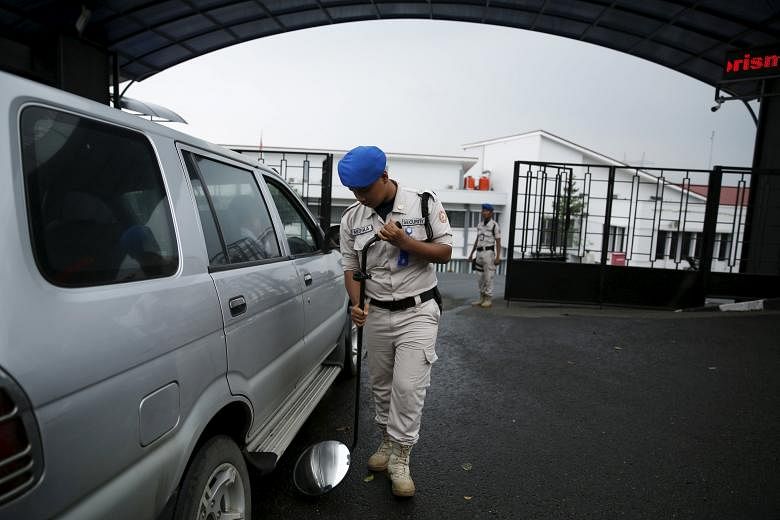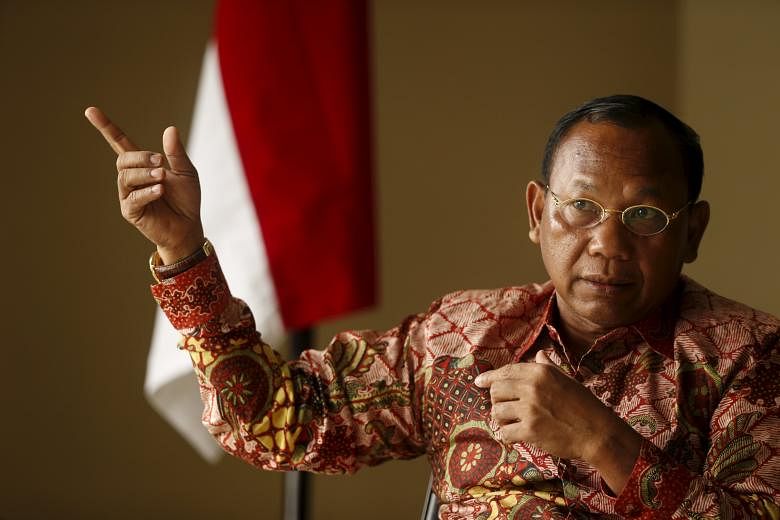JAKARTA • Indonesian authorities are working with their counterparts in China to stem a flow of ethnic Uighurs seeking to join militants in the world's most populous Muslim-majority country, Indonesia's counter-terrorism chief said.
Mr Saud Usman Nasution's comments came amid mounting concern in Indonesia about possible attacks by sympathisers of the Islamic State in Iraq and Syria (ISIS) group and followed the arrest of 13 men across the island of Java, including a Muslim Uighur with a suicide-bomb vest.
The appearance among Indonesian militant networks of Uighurs, who come from the Xinjiang region in far-western China, is likely to add to Beijing's concerns that exiles will return to their homeland as experienced and trained terrorists.
China says Islamist militants and separatists operate in energy-rich Xinjiang, on the borders of central Asia, where violence has killed hundreds in recent years.
Rights groups say much of the unrest can be traced back to frustration at controls over the Uighurs' culture and religion, and that most of those who leave are only fleeing repression, not seeking to join the ISIS fight. China denies repressing their rights.
Mr Nasution, who heads the National Counter-Terrorism Agency, said on Tuesday that several Uighurs had responded to a call last year by Santoso, Indonesia's most high-profile backer of ISIS, to join his band of fighters.
ISIS and human trafficking networks helped them travel via Myanmar, Thailand and Malaysia to Santoso's hideout in an equatorial jungle of eastern Indonesia, he said.
However, the would-be suicide bomber arrested on Dec 23 was hiding in a house just outside the capital, Jakarta.
"We are cooperating with China and investigating evidence such as ATM cards and cellphones," Mr Nasution said, adding that an Indonesian team went to China to interview members of the man's family, who would not confirm that they were related to him.
There was no immediate comment from China's Foreign Ministry on whether Beijing is collaborating with Indonesia.
"As far as China is concerned, these people are running off, some of them taking part in (militant activities) and planning to strike back,"said terrorism expert Pan Zhiping, of the Xinjiang Academy of Social Sciences. "Of course we must stop them. I believe, in terms of jointly guarding against extremism, it is necessary that we cooperate."
Dr Bilveer Singh of the S. Rajaratnam School of International Studies in Singapore said the direct involvement of Chinese Uighurs in South-east Asian militancy added "an external dimension to the existing home-grown terrorist threat".
"It could also complicate ties with a rising China, which may want to play a bigger counter-terrorism role in the region," Dr Singh said in a Eurasia Review article.
Indonesian officials believe there are more than 1,000 ISIS supporters in Indonesia, and say that between 100 and 300 have returned from Syria, though this includes women and children.
REUTERS


